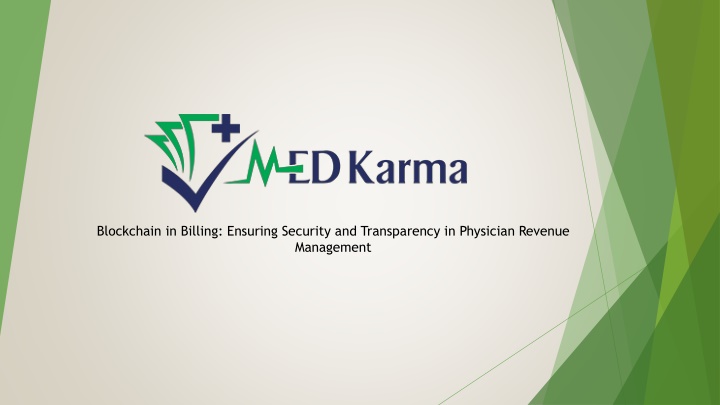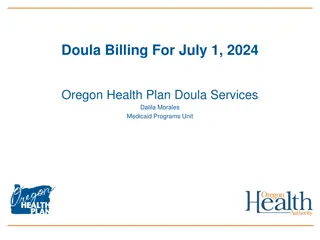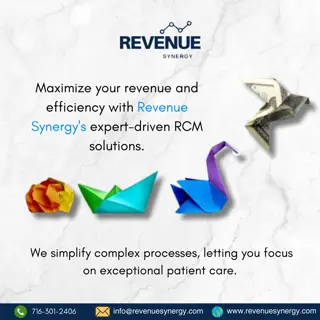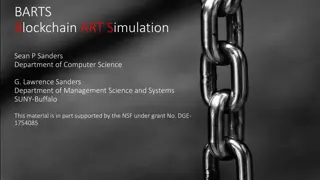Blockchain in Billing, Ensuring Security and Transparency in Physician Revenue Management
In the realm of healthcare, particularly in physician revenue management, maintaining the integrity of billing processes is paramount. Any inefficiency or error in billing not only impacts the financial health of medical practices but also poses ethical and legal concerns. Traditional billing systems have long struggled with fraud, data breaches, and lack of transparency. However, the emergence of blockchain technology offers promising solutions to address these challenges.n
Download Presentation

Please find below an Image/Link to download the presentation.
The content on the website is provided AS IS for your information and personal use only. It may not be sold, licensed, or shared on other websites without obtaining consent from the author.If you encounter any issues during the download, it is possible that the publisher has removed the file from their server.
You are allowed to download the files provided on this website for personal or commercial use, subject to the condition that they are used lawfully. All files are the property of their respective owners.
The content on the website is provided AS IS for your information and personal use only. It may not be sold, licensed, or shared on other websites without obtaining consent from the author.
E N D
Presentation Transcript
Blockchain in Billing: Ensuring Security and Transparency in Physician Revenue Management
In the realm of healthcare, particularly in physician revenue management, maintaining the integrity of billing processes is paramount. Any inefficiency or error in billing not only impacts the financial health of medical practices but also poses ethical and legal concerns. Traditional billing systems have long struggled with fraud, data breaches, and lack of transparency. However, the emergence of blockchain technology offers promising solutions to address these challenges.
Blockchain, most commonly associated with cryptocurrencies like Bitcoin, is a decentralized ledger technology that records transactions across multiple computers securely and transparently. Its key features, including decentralization, immutability, and cryptographic security, make it an ideal candidate for revolutionizing billing processes in the healthcare industry.
One of the primary advantages of blockchain in physician revenue management is enhanced security. Traditional billing systems are centralized, storing sensitive patient and financial data in a single location, making them susceptible to cyberattacks and data breaches. In contrast, blockchain distributes data across a network of nodes, making it extremely difficult for hackers to tamper with or compromise the information. Each transaction recorded on the blockchain is encrypted and linked to previous transactions, creating a chain of blocks that is virtually immutable.
In conclusion, blockchain technology holds immense potential to transform billing processes in physician revenue management by ensuring security, transparency, and efficiency. As healthcare organizations increasingly embrace digital innovation, integrating blockchain into their billing systems can safeguard sensitive data, streamline operations, and ultimately enhance patient care. By leveraging the inherent benefits of blockchain, healthcare providers can navigate the complexities of revenue management with greater confidence and integrity.























